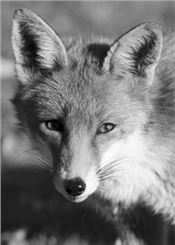|
Backyard Wildlife Is A Mixed Blessing

Habitat loss to urbanization means urban and suburban areas will
increasingly become options for wildlife searching for homes.
Photo by iStock/Benny Rytter
MISSISSIPPI STATE, MISS.
Habitat loss to fragmentation, urbanization, and expanding agricultural production means urban and suburban areas will increasingly become options for wildlife searching for homes. Song birds, snakes, lizards, coyotes, foxes, raccoons, deer and even bears are not uncommon visitors to urban and suburban backyards.
People may not realize that wildlife is beneficial. For example, snakes eat insect pests as well as rodents that can serve as hosts for parasites and infectious diseases that may be passed to humans. A venomous snake hanging around the backyard would be a cause for concern. But since only 20 of the estimated 127 species in North America are venomous, the probability of encountering one is low.
On the other hand, most people aren’t worried about a cute raccoon eating out of the cat’s outdoor food dish. However, that same animal could be a carrier for rabies, parasites, influenza, salmonella or other pathogens that are issues for people and household pets.
This does not mean people should be afraid of wildlife. People generally do enjoy wild animals, whether watching birds at a feeder or sharks on television. Rather than being fearful, people should be aware and respectful.
What should people know about backyard wildlife? If desired, folks can offer the food, shelter, and water that animals are seeking. Bird feeders, pollinator plantings, (unchlorinated) water features and native trees and shrubs can be artfully incorporated into landscaping to provide beauty and wildlife habitat.
For those who don’t want wildlife neighbors, care should be taken to avoid providing the food or shelter they are seeking. Common examples are outdoor pet food bowls, stacks of firewood or open spaces under homes or sheds.
If wildlife does appear in the yard, the best option for peaceful encounters is space. Wild animals, if not used to humans, will either escape the imminent danger humans pose or hunker down to hide until the coast is clear for them to leave. It is when people move in closer – whether intentionally to help or harm or accidentally through unawareness – that a wild animal will try to defend itself.
If an unwanted guest does not move on, it is best for all involved to contact local wildlife experts for their assistance. Not only will this avert any unwanted injuries to people or animals, it will also prevent any unintentional violations of the state and federal laws that protect most wildlife in the U.S.
Backyard wildlife is a mixed blessing. Co-existence is possible when common sense and research-based management practices are used to protect both people and wildlife. ∆
DR. LESLIE M. BURGER: Assistant Extension Professor, Mississippi State
|
|